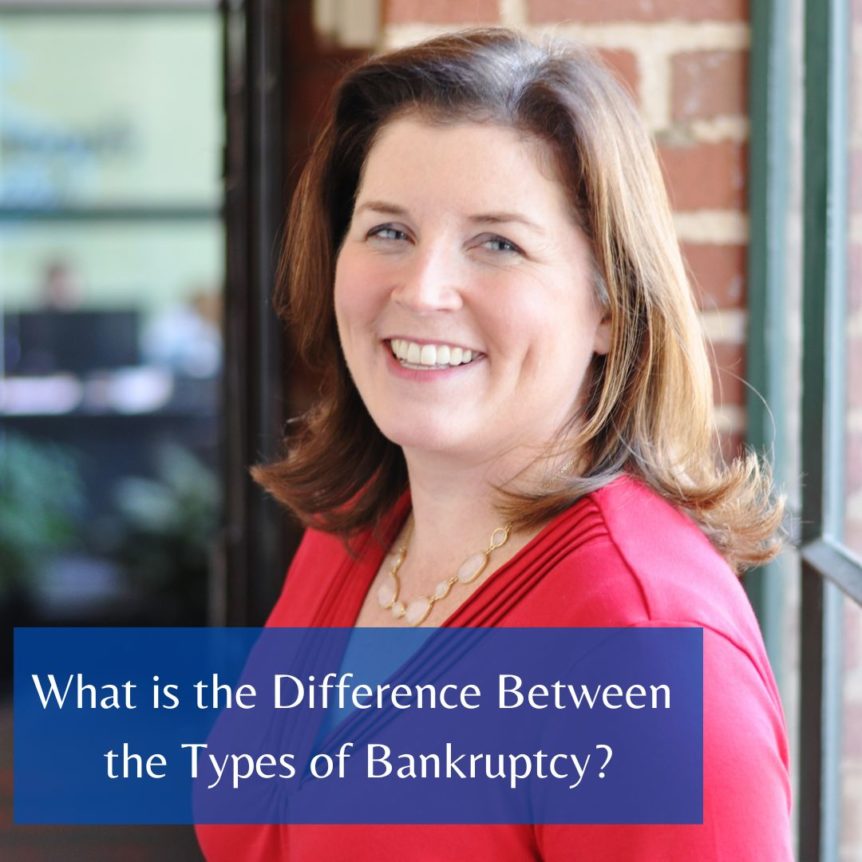by: Heather Culp
For folks who come to us for help with their debts, one of our most important responsibilities is to explain their legal options, how they work, and what they cost, and then help them determine the best path forward and help them execute that plan. If bankruptcy protection is an option, we may talk about Chapter 7, Chapter 11, and Chapter 13.
Chapter 7 is a liquidating bankruptcy. Individuals, married couples, and companies are all potentially eligible for Chapter 7. If the Chapter 7 debtor (the one seeking bankruptcy relief) is an individual or married couple, there are only two ways that creditors can receive payment through the bankruptcy court: either liquidation of the debtor’s non-exempt property (hence the term liquidating bankruptcy) or recovery from the debtor or third parties under certain legal theories. Let’s focus on the concept of liquidation of a debtor’s non-exempt property. As a general matter, if an individual or married couple cannot pay their debts on time and in full, the law doesn’t take everything from them to pay the debt. Instead, we’re all allowed to keep basic property to be productive and move on with our lives, and this property is known as “exempt property” or “exemptions.” In bankruptcy proceedings, a combination of state and federal law determines what property is exempt. A majority of Chapter 7 cases filed by individuals and married couples are what we call “no asset cases,” meaning there is no property available for liquidation. There are a few things to keep in mind on the topic of exemptions. (1) under North Carolina law, many of our most common exemptions cannot be used to protect property from certain kinds of debts, including tax debt, Chapter 50 debts (those for alimony or maintenance, child support, equitable distribution, and the like), and criminal restitution. (2) Exemptions do not apply to companies. (3) Under North Carolina law, exemptions can be waived in other court proceedings and “revived,” or properly claimed, in bankruptcy court. (4) If the exempt property is being financed, the loan must be honored and stay current – in other words, if you can’t pay for it, you can’t keep it.
Chapter 13 is a personal reorganization. When a Chapter 13 case is filed, the debtor(s) must propose a plan to make some payment to their creditors through the local Chapter 13 trustee. Most plans involve a monthly payment to the local trustee for a minimum of 36 months and a maximum of 60 months. Plans may include the surrender of financed property or the sale of property. The proposed plan must comply with the law and creditors, the Chapter 13 trustee, and the bankruptcy court have the right to object to the plan if it doesn’t. Individuals and married couples with regular income may be candidates for a Chapter 13 case. Regular income need not mean wages from employment; it can include investment income, Social Security income, income from private disability policies, alimony or maintenance, and other sources of income to the household. If the proposed plan is confirmed (approved by order of the bankruptcy court) and the debtor(s) abide by the plan terms and applicable law, then, at the end of the plan, the debtor(s) will no longer be personally liable for the unpaid balance owed on debts that can be discharged (for example, most types of student loans are not eligible for bankruptcy discharge and the obligation to pay will survive the bankruptcy).
Chapter 11 is a reorganization. It has quite a bit in common with Chapter 13, in that it involves proposing a plan as to how creditors will be treated, obtaining court approval of the plan, and fulfilling all obligations under the plan. However, while only individuals and married couples are eligible for Chapter 13, individuals, married couples, and companies may be eligible for Chapter 11. Chapter 11 is rarely the right choice for individuals and married couples who need debt relief, but if it’s a viable option, we’ll talk about it.
One of the best things about being a bankruptcy lawyer is learning about each client’s specific circumstances and goals and helping them select the best legal solution. This process starts with a consultation with an experienced, knowledgeable bankruptcy attorney.

